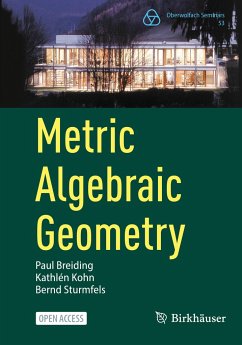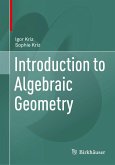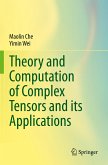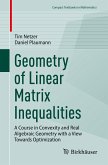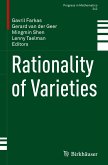Metric algebraic geometry combines concepts from algebraic geometry and differential geometry. Building on classical foundations, it offers practical tools for the 21st century. Many applied problems center around metric questions, such as optimization with respect to distances.
After a short dive into 19th-century geometry of plane curves, we turn to problems expressed by polynomial equations over the real numbers. The solution sets are real algebraic varieties. Many of our metric problems arise in data science, optimization and statistics. These include minimizing Wasserstein distances in machine learning, maximum likelihood estimation, computing curvature, or minimizing the Euclidean distance to a variety.
This book addresses a wide audience of researchers and students and can be used for a one-semester course at the graduate level. The key prerequisite is a solid foundation in undergraduate mathematics, especially in algebra and geometry.
This is an openaccess book.
Hinweis: Dieser Artikel kann nur an eine deutsche Lieferadresse ausgeliefert werden.
After a short dive into 19th-century geometry of plane curves, we turn to problems expressed by polynomial equations over the real numbers. The solution sets are real algebraic varieties. Many of our metric problems arise in data science, optimization and statistics. These include minimizing Wasserstein distances in machine learning, maximum likelihood estimation, computing curvature, or minimizing the Euclidean distance to a variety.
This book addresses a wide audience of researchers and students and can be used for a one-semester course at the graduate level. The key prerequisite is a solid foundation in undergraduate mathematics, especially in algebra and geometry.
This is an openaccess book.
Hinweis: Dieser Artikel kann nur an eine deutsche Lieferadresse ausgeliefert werden.

